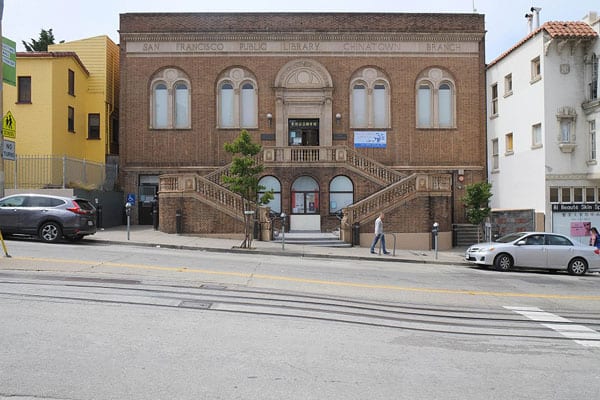
January 22, 2019; Next City
People may check out fewer books from libraries than they used to, but libraries have continued to grow as their role as community hubs deepens. Here at NPQ, we have profiled libraries that have become maker spaces, supported gardening, and rented out musical instruments. In some cities, librarians have been trained to administer Narcan to interrupt opioid overdoses. In Ferguson and in Baltimore, as those cities were in a state of unrest after the killings of Michael Brown and Freddie Gray, respectively, the libraries served as sanctuaries, remaining open to the community. They have, in some cases, even been affordable housing partners.
Yet another growing role, Emily Nonko reports in Next City, is in social service provision. Nonko notes that up to 30 libraries nationally, including in places like Chicago, Brooklyn, Denver, San Francisco, and Washington DC, have social workers on staff. A Chicago Tribune article last year mentioned that Justine Janis, a clinical social worker at the Chicago library, was leading a national monthly conference call of social service workers on library staff.
Nonko in particular focuses on efforts in San Francisco and Denver. San Francisco is considered to be the first major library system to put a social worker on staff, which it did in 2009. Denver’s effort dates from 2015, when it hired Elissa Hardy. The program serving 434 library customers in 2015. In 2018, it reached 3,500 library patrons. For 2019, Denver Public Library budgeted for a team of 10, including four social workers and six peer navigators. The team, Nonko adds, supports all 26 branch locations.
Hardy explains the Denver program’s rationale: “In social work we have this term called a ‘protective factor.’ The library is a protective factor for people, which is basically a place or a thing where we’re helping to support people, and not change things negatively for them.”
Sign up for our free newsletters
Subscribe to NPQ's newsletters to have our top stories delivered directly to your inbox.
By signing up, you agree to our privacy policy and terms of use, and to receive messages from NPQ and our partners.
Certainly, anything that increases social supports is likely to improve public health. As the Brookings Institution and the Robert Wood Johnson Foundation have argued, the US underspends on social supports (and overspends on clinical care). In the American Journal of Managed Care, Ara Ohanian notes that, “On average, OECD [Organization for Economic Cooperation and Development] nations spend $1.70 on social services for every $1 on health services; whereas the US spends just 56 cents.” Effectively, US peer nations spend 70 percent more on social care than healthcare, while the US spends 56 percent less on social care than healthcare, with social care dollars leading to more favorable health outcomes. Even within the US, Elizabeth Bradley and Lauren Taylor, writing for the Robert Wood Johnson Foundation, find that, “a 20 percent [increase] in the median social-to-health spending ratio was equivalent to 85,000 fewer adults with obesity.”
Libraries, of course, are just one piece of a larger puzzle, but they do make a difference. Leah Esguerra, who was the first clinical social worker hired by the San Francisco library system, tells Nonko that, “The idea was to reach out in a way that’s compassionate.” Now, Nonko explains, the San Francisco Public Library now has a team of five that supports Esguerra. These social workers inform patrons about resources and services and have helped at least 130 people find stable housing.
One key lesson emanating from both San Francisco and Denver is that when possible, it pays to hire social service staff who have had lived experiences of homelessness and other adverse life challenges, as this helps the staff connect with patrons—relationship-building, of course, being a central part of the work. “It’s empowering our staff members who are closest to the situation,” says Rachel Fewell, central library administrator for the Denver Public Library. “Our peer navigators come up with the most innovative ways to meet the needs of our customers.”
The impact, Nonko adds, “is starting to go beyond clients reached and cultures shifted within the library setting.” In particular, Nonko points out that library social service staff are increasingly serving on public health committees and engaging in an advocacy role on behalf of their patrons. “These two disciplines, librarians and social work, come together so beautifully—we can look at these issues from two different angles,” Hardy says. “We’re getting out there, talking to these decision-makers, and advocating.”—Steve Dubb












